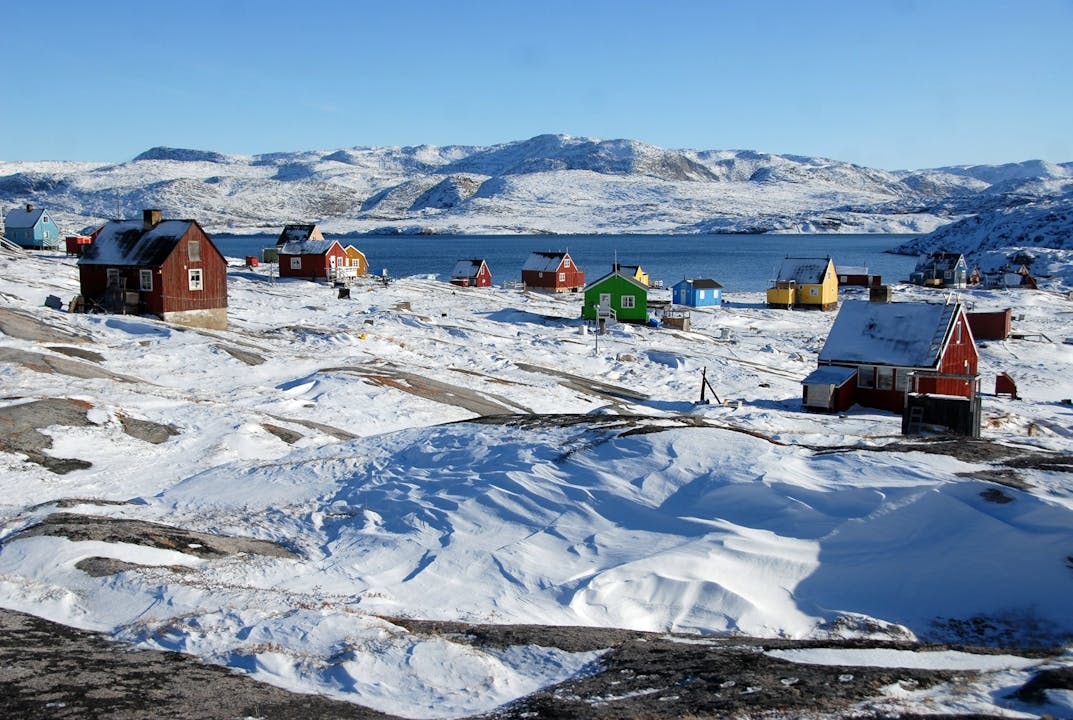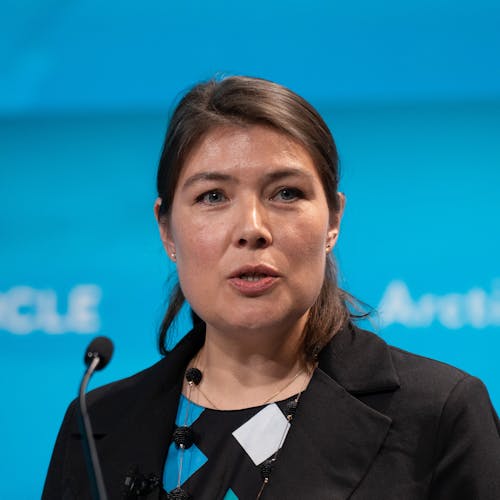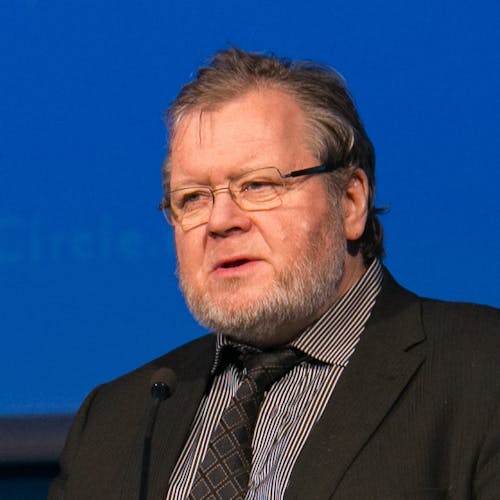“Greenland in the Arctic” is the latest Mission Council launched by Arctic Circle. The aim is to improve the engagement with Greenland by bringing together people who are active in issues of importance to Greenland. The new Mission Council will provide a structured framework to address the challenges, projects, issues, initiatives, plans and tasks that relate to the affairs of Greenland. The new platform was launched on Virtual, Arctic Circle’s online broadcasting arm, on June 7th, with an open session where the new Foreign Minister of Greenland, HE Pele Broberg, outlined the foreign policy of the new Government and fielded questions from a global audience.
The Foreign Minister gave an exhaustive presentation of Greenland’s new foreign Policy and detailed the position of the new Government, led by Múte B. Egede from the IA party, on several important issues. The topics included mining, defense, NATO, China, Russia and future relations with the US. He also explicitly addressed questions on the future independence of Greenland. For us, as the co-chairs of the new Mission Council who also mediated the inaugural event, the Foreign Minister’s contribution was a tour de force, spiced by frank and crisp answers to penetrating questions from the audience (see the Foreign Minister’s remarks on Arctic Circle’s YouTube page; www.youtube.com/TheArcticCircle).
From any angle Kalaallit Nunaat - Greenland - is a unique and remarkable country. It is the world’s largest island, situated between the Arctic and the Atlantic oceans. The population is tiny, only 56 thousand, living in small towns and communities, with the great majority on the southernly part of the west coast. The capital, Nuuk, is the biggest by far with close to 20 thousand inhabitants. Vast distances combine with remoteness to make it an economic and physical challenge to run and develop this Arctic society. The Greenland ice sheet, covering 80% of the country, is melting at an increasing rate and has become a global symbol for climate change and global warming. Scientists warn that a “tipping point” may be close. The country is still a part of the Danish Kingdom but attained home rule in 1979 and self-government in 2009. The Greenlanders elect their own Parliament and Government. Although Denmark still controls the domains of Security and Defense Policy, Greenland runs her own diplomatic missions in Washington DC, Brussels, Denmark, Reykjavík, soon in Beijing, and is increasingly assertive in the Foreign Policy sphere. Greenland has repeatedly shown, that small, self-governing nations, by their diplomatic and Foreign Policy actions, can form not only their own destinies, but also affect developments regionally, and sometimes globally.
Today, Greenland is at crossroads. Having negotiated the Covid pandemic in a more successful way than most nations the Greenlanders, like the rest of the world, are tackling the pandemic’s economic aftermath. At the same time they also are engaged in implementing a three-pronged plan targeting future economic independence. In essence, the plan entails modernization of the fishing fleet, already accomplished; transforming tourism into a future powerhouse for the economy of Greenland with two new international airports in Nuuk and Ilulissat, already on track; and by preparing mining as a future stream of revenue. The ultimate goal of most of the political parties in Greenland is full independence.
Despite the controversy related to the mining of uranium in South Greenland, that caused the collapse of the previous Government and snap election in April, Foreign Minister Broberg made it clear in his remarks at the launch of the new Mission Council, that uranium aside, foreign investments in mining would be welcomed. In this respect, Greenland is in a unique position, as it has an abundance of all mineable minerals, including huge reserves of Rare Earth Metals that increasingly attract global attention.
Remarkably, despite the pandemic the three-pronged economic plan remains on track. This is reflected by the continuing construction of the new airfields; ongoing preparation for stricter controls on the fishing stocks and steady issues of new exploration licenses within the mining field. At the same time successive governments continue to invest heavily in education that has lagged behind Europe since the days of colonial rule. Interestingly, for several years Greenland has allocated a higher share of GDP to education than any European nation.
In the past and present, Greenland faces difficult social challenges. Today, however, forces are joined in moving in a positive direction. Although rates of crime and violence are still high, consumption of alcohol, one of the scourges of the past, has plunged in the last 20 years. It is presently less per capita than in Denmark and Iceland. In these years, Greenlandic youth is raising their voices, once again pushing for debates on decolonization and identity, highlighting that Greenlanders take great pride in their Inuit culture and have, post-colonially, managed to conserve and strengthen the Greenlandic language, Kalaallisut.
Today, Greenland faces a future with plenty of promises but also difficult challenges. The launch of a special Mission Council on Greenland, under the aegis of Arctic Circle, is therefore highly appropriate and well-timed. It also is a logical continuation of the emphasis bestowed on Greenland by Arctic Circle since its inception in 2013. Greenlandic leaders have featured prominently in key sessions of all the Arctic Circle Assemblies. Successive Greenlandic Governments have simultaneously designated the Assemblies and its various platforms as the main venues to outline their policies and projects, and to extend Greenland’s international reach. Indeed, Prime minister Kuupik V. Kleist (2009-13) played a role in the establishment of the Arctic Circle Assembly as an Honorary Board Member, and presently is a member of the Advisory Board.
* At the opening session of the first Assembly, 2013, Aleeqa Hammond, the first female Prime Minister of Greenland (2013-14) gave a keynote speech on Greenland’s Arctic perspectives;
* In 2014, Josef Motzfeldt, Speaker of the Inatsisartut, the Parliament of Greenland, was a main contributor in a Session on the West-Nordic Arctic Cooperation;
* In 2015, Vittus Qujaikitsoq, Minister for Industry, Labour, Trade and Foreign Affairs affirmed in a keynote speech the future ambitions of Greenland;
* In 2016, Arctic Circle convened a special Forum in Nuuk in cooperation with Naalakkersuisut, the Government of Greenland, where representatives from all over the world discussed the “Economic Development for the Peoples of the Arctic”. Sessions included tourism, shipping and airlines, natural resources, fisheries, and the empowerment of Indigenous Peoples across the Arctic. The Forum was highly successful and one of the largest conferences to take place in Greenland.
* In 2018, two sessions of the Assembly were devoted to growth and infrastructure of Greenland, where, notably, a young West-Nordic Council member, Múte B. Egede, spoke on the new geopolitical environment facing Greenland. He is currently the Prime Minister of Greenland (2021-).
* In the aftermath of President Trump’s brazen offer to buy Greenland in 2019, Prime Minister Kim Kielsen (2014-21) was a keynote speaker in the Opening Session of the Assembly and in his native tongue, Greenlandic, stated that “Greenland is not for sale, but it is open for business.” The same Assembly featured a unique Plenary Session on “Greenland on the World Stage” where young Greenlandic diplomats, heading Greenland’s representations in Washington D.C., Brussels, Denmark, and Iceland, freely discussed the future path of Greenland in the international arena.
To sum up, a plethora of leaders from all spheres of Greenlandic life have participated and contributed to a multitude of events at every level of Arctic Circle. Greenland, in fact, has become one of the defining themes of Arctic Circle activities. The launch of the new Mission Council is a further manifestation of Greenland’s growing importance. In the coming months, the Mission Council will explore the subject of “Greenland in the Arctic” by diverse means, including Virtual Sessions and events at the Arctic Circle Assemblies and Forums. The work of the new Arctic Circle Mission Council remains open to anyone interested in the affairs of Greenland.


